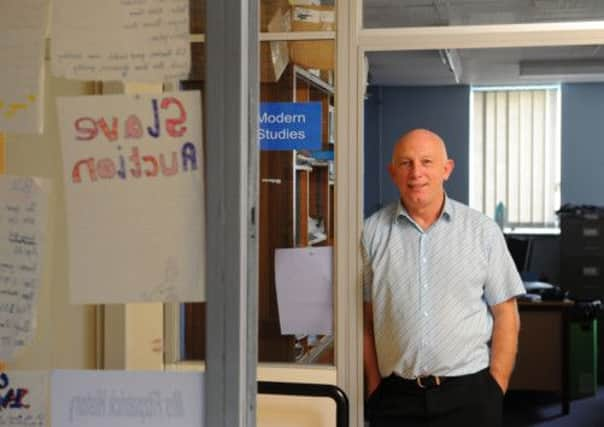Hugh Reilly: A tilt at the windmill of Gaelic


The only exception is Gaelic, a terminally-ill tongue that had the Do Not Resuscitate sign snatched from its deathbed by an SNP government determined to maintain bi-lingual signage at Queen Street Station and all major Homebase stores. Putting an ailing language, one that is not recognised by the EU, on to a life support system of government subsidy doesn’t come cheap – it costs £25m to produce televisual feasts such as BBC Alba, a channel whereby one can watch football with the annoying Gaelic commentary turned down and await the half-time analysis in English by monolingual pundits.
In the 2011 census, fewer than 58,000 folk ’fessed up to having a working knowledge of Gaelic yet, like mole-hills on a bowling green, Gaelic medium schools continue to spring up unexpectedly; usually, one has to say, in leafy, prosperous areas. It is no accident that Glasgow’s institute for teuchter education is located in the city’s west end. For the parents of Angus Og and the like, the fact that one’s seed attends the Gaelic school is always something worth dropping into after-dinner conversations with friends. Clinking glasses and saying “Slainte!” rather than “Cheers!” is de rigueur for the Byres Road set (wearing a See-You-Jimmy hat while making the Erse toast is somewhat frowned upon).
Advertisement
Hide AdAdvertisement
Hide AdWhile the slurping snouts of Gaels struggle to stop the trough overflowing with taxpayers’ cash, Scots language is going the way of Hittite. Jings! Crivvens! In future years, if current trends continue, Oor Wullie annuals will become Rosetta Stones for linguists endeavouring to translate the forgotten demotic patois. Last week, a headteacher who collected a lifetime award for her dedication to the profession, spoke out against the decline of auld Scotch. Isabel Lind was “sair hodden” (overwhelmed) to receive the recognition and used the occasion to promote the use of Scots. For example, this week being Halloween, her school will use the term “galoshans” rather than the Sassenach word “guising”.
She is fighting a losing battle. Kids today prefer to employ Americanisms when exercising their vocal chords. Parties where alcoholic beverages have been imbibed are described as having been “awesome”, not “braw”. A foetus conceived at such an event will, nine months hence, be the centrepiece of a “baby shower”, not a “bairn shower”.
I’ve yet to hear a young person describe a dull, miserable day as being dreich. In my experience, usage of Lallans increases with dotage. I’d guess my mother was in her mid-seventies when she suddenly developed a hitherto latent desire to litter her utterances with rustic Scottish words. It’s as if she is journeying back to her early childhood or “ben the womb” if you will. On my infrequent visits to see my aunt Jean in her care home, I’m struck by the number of times I hear residents speak of being “scunnered” with the food and tired of “stooshies” with unsympathetic staff.
Like most educated people, I find the Mither Tongue almost unintelligible. We all love to believe Burns was a magnificent poet writing in the lingo of the common man – the Eminem of his day. On the Bard’s birthday, we take immense pleasure in reciting a couple of his more penetrable lines of verse:
“Wee, sleekit, cow’rin, tim’rous beastie/O, what a panic’s in thy breastie!”
However, in verse three, what the heck does “A daimen icker in a thrave” mean? “Gang aft agley” is supposedly poetic but to my ears it spookily sounds like the final, gurgling words of Robert Maxwell. In the Second World War, the US army used Navajo Indians to ensure communications were not compromised by the enemy. If the Nazis had not relied on a crappy Enigma machine and, instead, had used a couple of captured sodjers from Cumnock to flummox Bletchley park codebreakers, we’d all be speaking German now.
To be fair, there are some Scots words that will forever remain in the memory. Arthur Montford’s use of “stramash” conveyed the coming together of bodies better than any English word. Likewise, “glaikit” brilliantly encapsulates the look on the face of Johann Lamont whenever she is pressed on what her alternative is to the council tax freeze.
Tonight, I’m off to see a Flamenco show where I’ll hear the sound of clatter banes (castanets) and see some lassie wi’ a flouer in her heid daein’ a jig. A long-haired male singer will wail and screech with wild intensity in a language I don’t understand. It’ll be all Gaelic, oops, Greek to me.